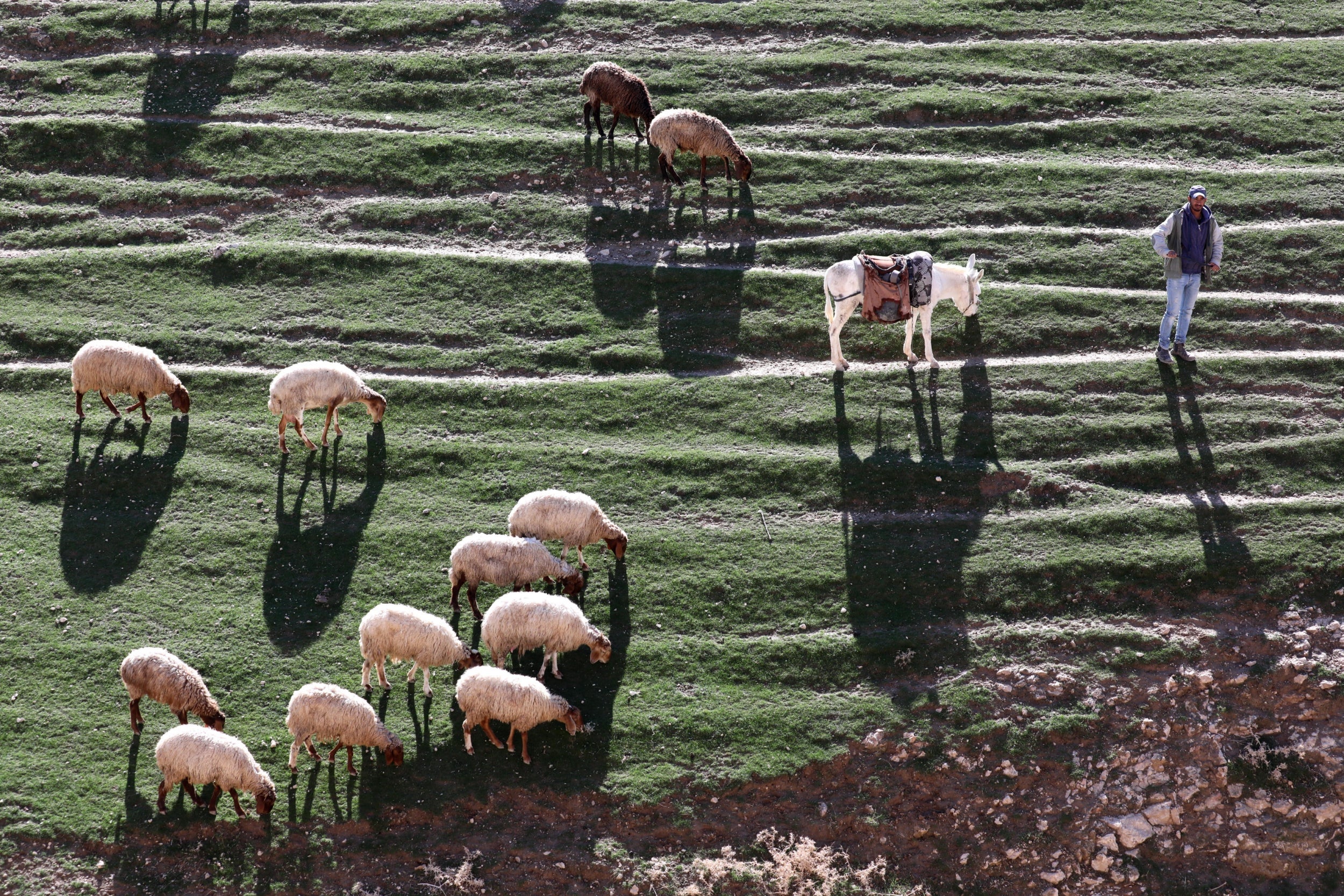Israel to open seven new nature reserves in occupied West Bank
Palestinians call controversial move 'dangerous and expansionist' as Israeli rights groups say building new reserves violates international and local law

Israel has announced that it will open seven new nature reserves in the occupied West Bank, the first time it has made such a move in 25 years.
The controversial decision sparked a backlash from Israeli rights groups and the Palestinian leadership, which has vowed to lodge complaints with the United Nations and international courts.
Naftali Bennett, Israel’s defence minister, confirmed the new sites and said the move was a “big boost for the land of Israel”. He added that 12 existing reserves will also be expanded, including Qumran, where the Dead Sea Scrolls were discovered in caves 70 years ago.
Mr Bennett, who heads the pro-settlement New Right party, said the reserves will be located in Area C, which makes up 61 per cent of the West Bank and is under total Israeli control.
The lands will include the Jordan Valley, which Prime Minister Benjamin Netanyahu said he planned to annex in September.
Israeli settlements in the West Bank are considered illegal under international law and detrimental to a widely accepted two-state solution to the decades-long Israeli-Palestine conflict.
According to Israeli rights group Peace Now, which monitors settlement expansion, more than a third of the proposed location of the new reserves is on private Palestinian land, making it illegal even under Israeli law.
Mr Bennett was quoted as saying: “Today we provide a big boost for the land of Israel and will continue to develop the Jewish communities in Area C with actions, not with words.
“I invite all the citizens of Israel to tour and walk the land, to come to [the West Bank], sight-see, discover and continue the Zionist enterprise.”
Mr Bennett said it would be the first time such a decision was taken since the Oslo Accords were signed in the 1990s.
He is likely to be trying to rally support as he seeks re-election to the Knesset in the forthcoming 2 March vote.
The Palestinian Authority was quick to condemn the latest move, accusing Mr Bennett of "erecting a new colonial umbrella to fight the Palestinian presence in those areas".
The Palestinian foreign ministry said it would lodge complaints over the "dangerous announcement" at the UN and in international courts.
“The Foreign Ministry condemns in the strongest terms Bennett’s colonialist and expansionist decisions and affirms that the so-called nature reserves are just another scheme for the appropriation and seizure of Palestinian land,” the ministry said, as reported by Palestinian news agency WAFA.
“This goes, in the end, for the benefit of shoring up settlements in the occupied West Bank.”
Peace Now said the move was part of restricting Palestinian access to their lands and normalising the annexation of parts of the West Bank.
The group added that Israel has 96 nature reserves and 14 national parks in the West Bank, despite it being a violation of international law.
Brian Reeves, a Peace Now spokesman, said 31 Israeli settlements or outposts were built partially or entirely within these reserves.
“These reserves serve a larger function of keeping land off-limits to Palestinians. Nature reserves and national parks have also been used to prevent Palestinian construction,” Mr Reeves told The Independent.
“Under international law, any Israeli building or designation in the West Bank is illegal. But 38 per cent of these lands are on private Palestinian land adding a second layer of illegality under Israel’s own laws.
“They are trying to slowly take over Area C as if this wasn’t occupied territory. No two-state solution could envision 61 per cent of the West Bank being part of Israel.”
Join our commenting forum
Join thought-provoking conversations, follow other Independent readers and see their replies
Comments
Bookmark popover
Removed from bookmarks